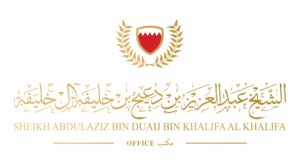Women Empowerment in the Middle East: where do we stand?
Global Women Empowerment
Women Empowerment Movements are happening all over the world and are changing women’s lives for the better. An entire globe is thriving towards gender equality – a goal so important that it is on top of the United Nations agenda: Sustainable Development Goal #5 out of 17 – all to be achieved by 2030. According to the World Economic Forum, The Global Gender Gap has been closed by 68% – 32% inequality remain. At current speed, it will take the world 131 years to reach full parity.
When it comes to gender equality in business, things are moving visibly. Globally, ~30% of leadership roles are allocated to women – significantly varying across regions, industries, functions, and hierarchies. And for the first time ever women CEOs account for more than 10% of Fortune 500’s companies in 2023.
Women empowerment in the Middle East – things are moving fast
Across the GCC (Gulf Corporation Countries), ambitions towards gender equality are incorporated in all national visions and priorities. After all, the importance of Women Empowerment and gender equality is also one of a country’s economic interests. The entire GCC could add as much as $812bn to its GDP in the next three years by achieving holistic gender parity.
Many governmental initiatives are in place to drive gender equality in the region. And the region has advanced in an unparalleled speed within the last years. Female labor rates have increased massively by up to 50%, women are represented in parliaments and hold prominent positions across various sectors, including government, business, and academia.
Within the GCC, the UAE are pushing strongly forward. 70% of all Emirati university graduates are female – one of the highest tertiary education enrollment rates in the world. The country ranks #1 among the MENA countries in the World Economic Forum Global Gender Gap Index # and ranks #71 out of 146 countries assessed. All UAE publicly listed companies are required to have at least 1 female director on their boards. And many governmental and private initiatives such as the Gender Balance Council, the Dubai Business Women Council, and the Abu Dhabi Business Women Council are in place to support women. Role Models do exist and inspire an entire generation of thriving females.
Barriers still exist
But all that glitters is not gold. And while the region has shown major progress in certain areas, it has still one of the largest gender gaps in the world. Especially in the category economic participation all GCC countries rank in the lowest 15% of all evaluated countries.
Significant differences in unemployment rates between men and women and an uneven share of leadership roles (93% of leadership roles are held by men) show that there is still work to do.
According to a recent survey with >1,100 participants conducted by Bain & Company on advancing gender equity in the GCC, “70% of women highlighted that gender bias and stereotypes represent one of their biggest challenges to workplace advancement, along with inadequate mentorship, training, and support for work-life balance.” “These challenges directly hinder women’s corporate leadership advancement in the region, and similar challenges are faced globally.”
How to overcome these challenges?
Three main levers help to overcome these challenges:
- Increasing mentorship and sponsorship within and outside the workplace
Women are often overmentored and undersponsored. A broad network of male and female mentors and sponsors across various industries, positions and generations provides guidance, support, and know-how, and opens doors for further business opportunities. Inspiring role models are one of the catalysts for female careers. - Shedding light on existing gender bias
Gender stereotypes and biases persist. Often organizations haven‘t even realized bias exist. Uncovering these bias in organizations, social media, and trainings is important to raise awareness to men and women and to overcome them step by step. - Targeted training and career-building opportunities Continuous training and coaching opportunities are key to build technical and social skills, including leadership skills. “25% of female survey respondents identified a lack of relevant experience or skills as the primary barrier to workplace advancement”, the Bain survey states. Targeted trainings and coachings in a trustful and secluded atmosphere are crucial to further drive gender equality in the region.
Although certain barriers exist, recent developments and achievements in the region show how fast gender equality can advance within only a few years. By creating an atmosphere of trust, inspiration and encouragement we will get to see many more inspiring examples in future.

Text by Sarah Sefiane CEO Skyrize Partners




